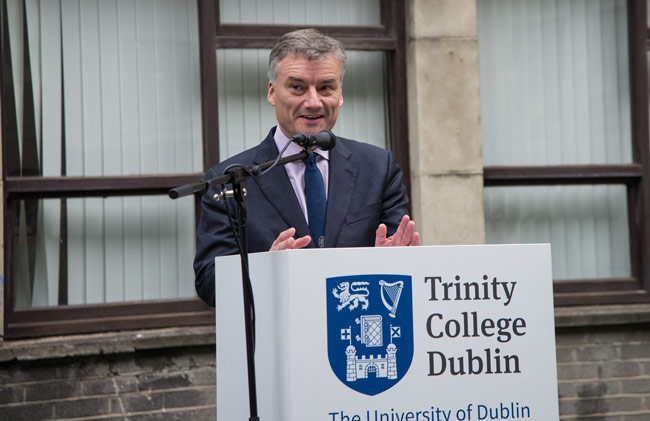The University of Oxford is considering expanding its Trinity-inspired access programme, Provost Patrick Prendergast told a conference in Brussels this week.
In a speech to the European Education Summit, Prendergast said that Oxford is considering the expansion of its foundation-year pilot programme, modelled on Trinity Access Programme (TAP), to two more of its colleges.
“This has been a resounding success. It is now on its second cohort, and two other Oxford colleges are now also looking to pilot the foundation year”, Prendergast told those present.
The programme, which was initially piloted in Lady Margaret Hall, a constituent college of Oxford, is a four-year pilot scheme run in association with TAP. In an email statement to The University Times, Cliona Hannon, the Director of TAP, confirmed that the project had been a success and that 70 per cent of those who partook had progressed on to a third-level education in Oxford.
“Although Oxford has a range of outreach programmes…a few of the colleges have expressed interest in learning more about the Foundation Year”, confirmed Hannon.
Prendergast gave the speech on the same day that nearly 120 students graduated from Trinity’s postgraduate certificate in 21st century teaching and learning, a course run jointly by the TAP. Hosted in Brussels, Prendergast was addressing senior university and education staff from across Europe on Trinity’s experience of widening access to third-level education. “We owe it to ourselves, our students and our societies to ensure that our campuses are diverse and multifaceted, and reflective of different societal backgrounds”, he said.
“There are a number of reasons why students might not enter a degree course or finish it once they’re in there, something Trinity recognises”, said Prendergast.
Prendergast said that while the Irish system seemed to encourage a level playing field, it was nothing more than “an algorithm which only recognises academic achievement, not the story behind it”.
Trinity, he explained, wanted to create a better path to education for students coming from socio-economically disadvantaged backgrounds. This resulted in the creation of TAP 18 years ago. Initially only involving one course for mature students and another one for young adults coming from socio-economically disadvantaged backgrounds, there are now 900 TAP students partaking in undergraduate courses alone.
Admitting that helping all socially disadvantaged students is “a task well beyond us”, Prendergast explained that TAP aims to identify “those with aptitude for higher education who might otherwise fall through the gaps, and then giving them the advice and support to enable them to continue through to graduation”.
The success of TAP, said Prendergast, is demonstrated by the fact that other Irish universities have started to set up similar programmes.
“The aim is to attract creative students whose potential isn’t being measured by exams – it’s open to all because there are also, of course, middle-class students whose aptitude isn’t measured by the current exam-based general admissions system”, Prendergast explained at the summit.







